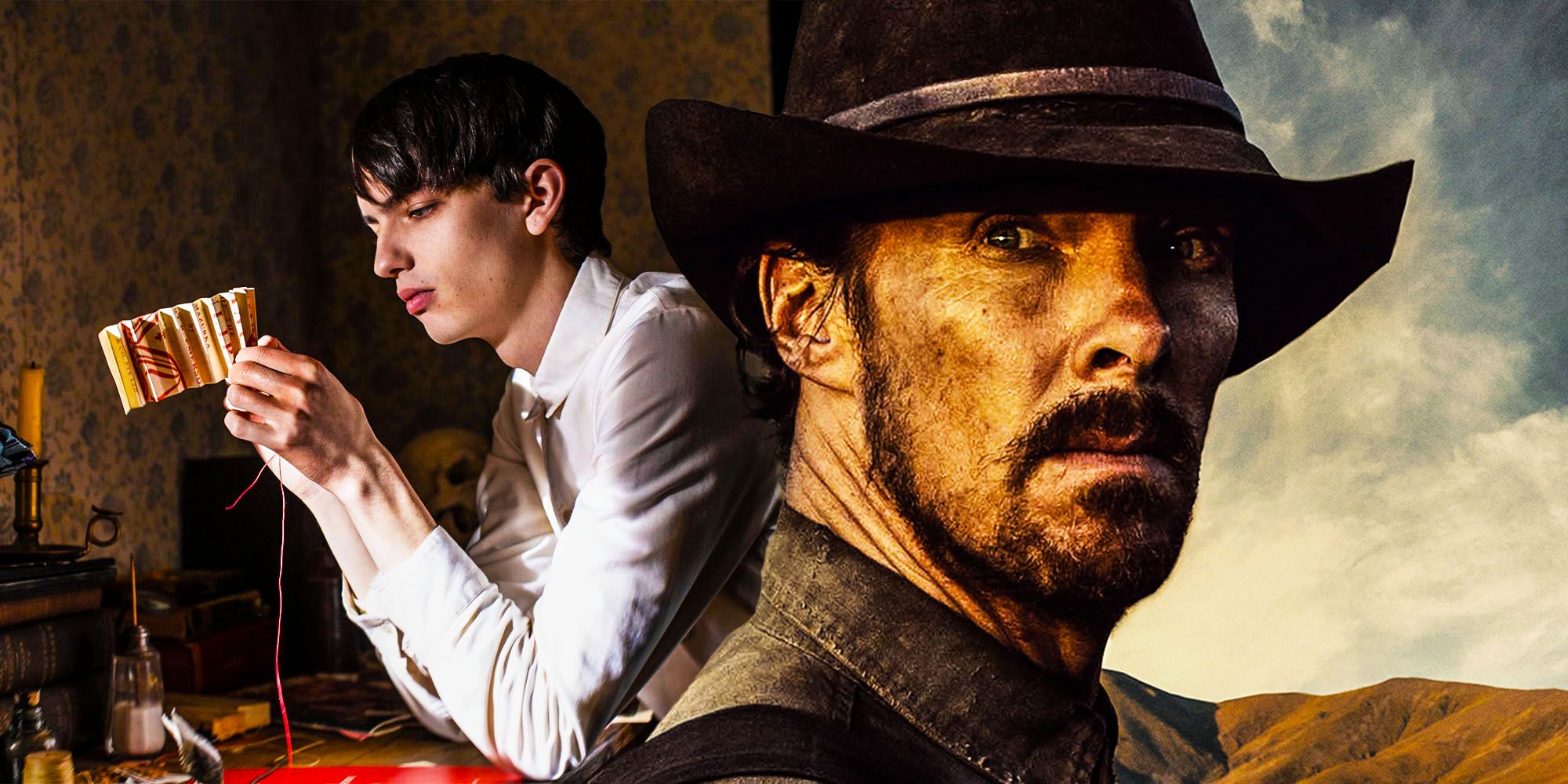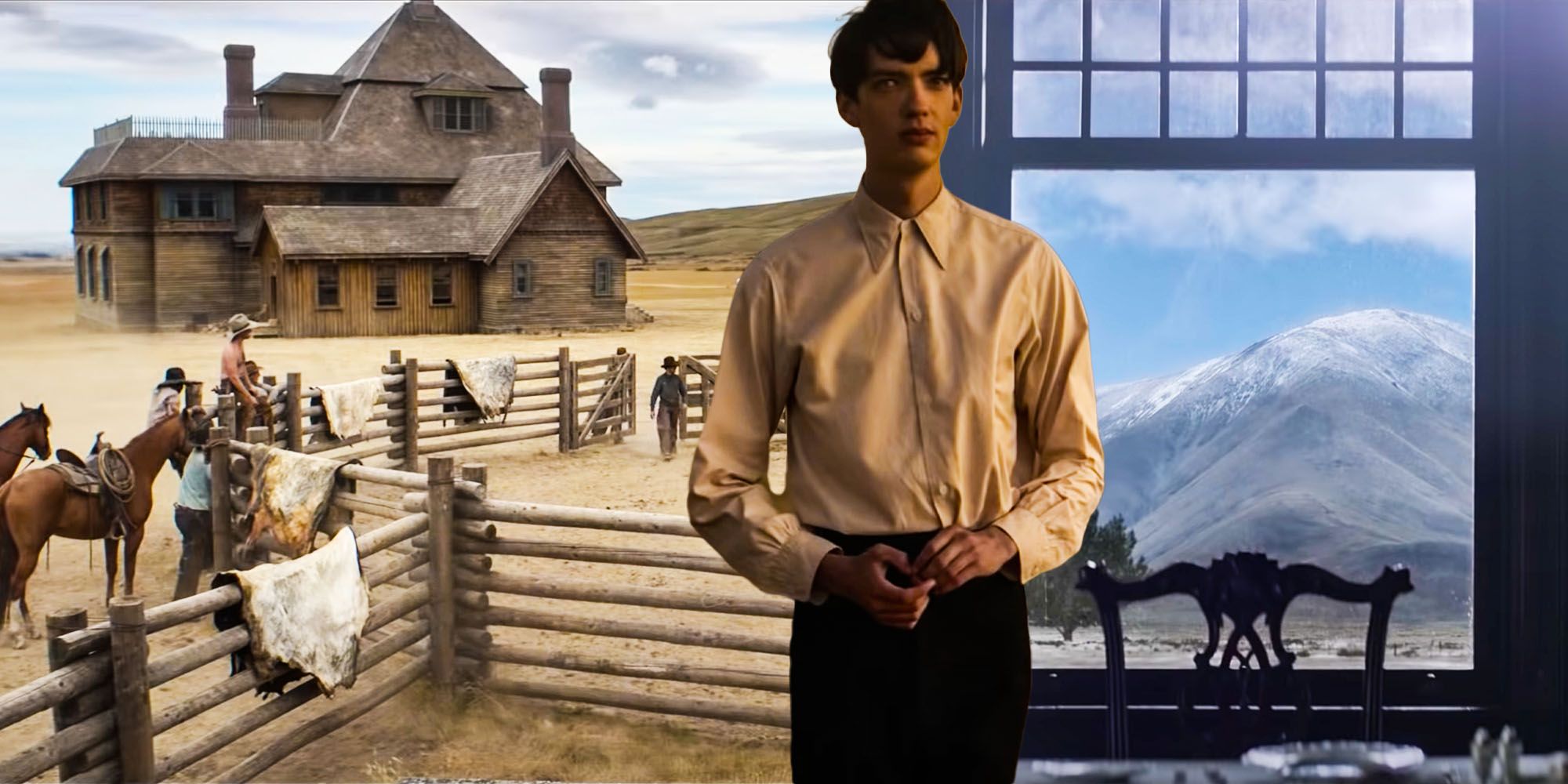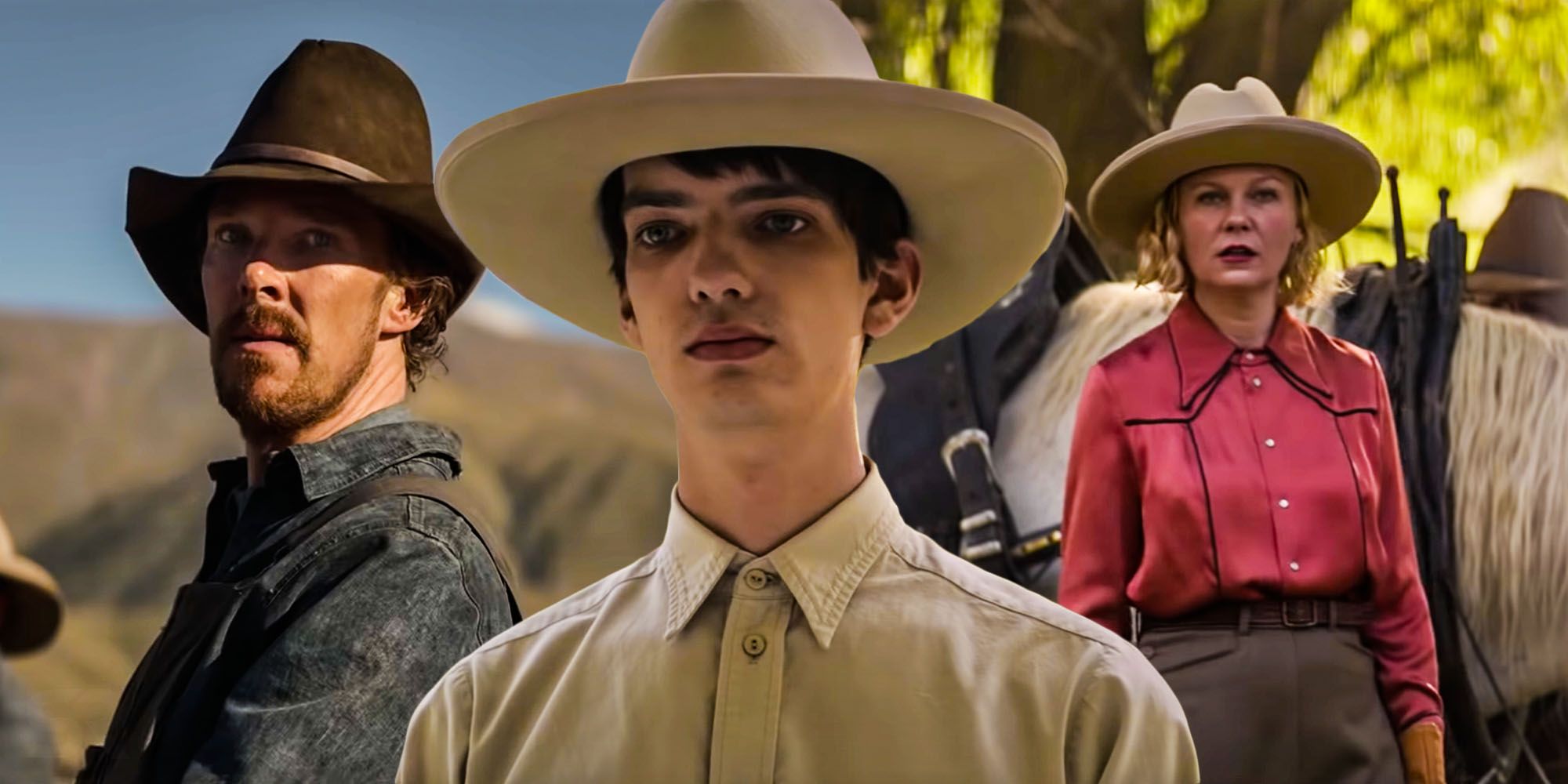
Warning: Major SPOILERS for The Power of the Dog ahead!
The Power of the Dog title meaning becomes clear in the final moments of the film, in which Peter is seen reading a bible verse. Written and directed by Jane Campion, The Power of the Dog has been the darling of the film festival circuit, collecting awards from San Sebastian Film Festival, Venice Film Festival, and the Toronto International Film Festival and already earning a lot of Oscar buzz. However, despite the acclaim, there remains a sense of mystery around what exactly The Power of the Dog actually means.
The Power of the Dog stars Benedict Cumberbatch (recent star of The Electrical Life of Louis Wain), as Phil Burbank, a charismatic, super-macho rancher living in the sprawling landscape of Montana in 1925. Phil is distressed by his brother’s marriage to a local widow, Rose (played by Kirsten Dunst), and his disapproval of the union weighs heavily on Rose and Phil’s brother George, but the greatest victim of Phil’s wrath is Rose’s son, Peter. A maker of paper flowers and a gentle spirit, Peter becomes Phil’s whipping boy and suffers the greatest outpouring of Phil’s torment until Peter discovers Phil’s greatest secret and their relationship changes dramatically. After releasing in theaters in mid-November, the film is now available to stream on Netflix.
Following Phil’s death, Peter (played by the X-Men movies’ Kodi Smit-McPhee) is seen sitting on his bed reading the Bible. There in the text lies the film’s title, found in the book of Psalms, chapter 22 (via Bible Gateway): “Deliver my soul from the sword; my darling from the power of the dog.” While the implication is that Phil is the dog and that the rest of the characters are saved from his power by his death, there are far more correlations to be made from the context of the verse and surrounding bible chapter that lend more insight into The Power of the Dog.

While the verse seen in the film may seem straightforward, the “power” referenced in Psalms 22:20 remains largely mysterious. It is understood that the dog from the text is Benedict Cumberbatch’s character in The Power of the Dog, but his power remains elusive and subject to viewer interpretation—yet it is undoubtedly present. George walks on eggshells around him, unable to reveal his true feelings or thoughts for fear of ridicule; Rose withers like a thirsty flower in The Power of the Dog, descending into a bleak alcoholism, and gentle, artistic Peter becomes a murderer by the film’s conclusion. The “dog” has power—yet the power is merely suggested, never executed.
In The Power of the Dog, Phil is quiet, delivering stoic lines a few at a time in the true style of the classic Western. Phil is non-confrontational, hiding in rooms with his banjo and letting his absence speak more than his presence, yet he wields an intense psychological strength over the other characters in the film that is simultaneously gentle and vicious. This leads to the conclusion that the power referred to in The Power of the Dog is one of psychological force, rather than physical.
Phil’s power comes from demeaning people, an idea that is reinforced by the previous verses from Psalms chapter 22: 6-7, “But I am a worm, and no man; a reproach of men, and despised of the people. All they that see me laugh me to scorn: they shoot out the lip, they shake the head…” Phil burns Peter’s paper flowers and whistles from a window while hiding in his room to let Rose knows he is watching her. He plays Rose’s piano piece perfectly on his banjo without ever saying a word and calls his brother George (played by Jesse Plemons from the recent Antlers movie), “fatso,” emotionally abusing others until their view of themselves is their greatest enemy. It is Phil’s ability to prey on others’ inadequacies and insecurities—thus making them question their value and feel like “worms”—that is the dog’s “power” from The Power of the Dog.

Interestingly, the verse behind The Power of the Dog is a prayer spoken by Jesus. Psalms 22 begins with the verse, “My God, my God, why hast thou forsaken me?” — Jesus’ famous words from his crucifixion. In verse 16 he says, “For dogs have compassed me: the assembly of the wicked have inclosed me: they pierced my hands and my feet.” This leads to the idea that The Power of the Dog is projecting the character played by Kodi Smit-McPhee (who also stars alongside Dopesick’s Peter Sarsgaard in the series Interrogation) as a Christ-like figure.
Like the heckling from verse 7 and verse 16’s reference to being bullied by “dogs,” the chapter further correlates Phil’s treatment of Peter in The Power of the Dog in verses 12-13: “Many bulls have compassed me: strong bulls of Bashan have beset me round. They gaped upon me with their mouths, as a ravening and a roaring lion.” This verse draws ties to the scene in which the cowboys circle around Peter and taunt him at Phil’s behest. Yet, while there may be some similarities between Peter in The Power of the Dog and Jesus, like the idea that both were outcasts, the Christ-like projection of the murderous Peter seems a bit ambitious.

If Phil is the “dog” from the Bible’s verse, who is the verse’s “darling?” Peter’s mother, Kirsten Dunst’s Rose, is the most obvious answer as Peter is the one in possession of the Bible when the verse is shown and he says at the beginning of the film that he seeks to save her. This idea is fortified by the end scene in which Peter stares down upon Rose and George from his room after reading the verse and watches as his mother and George embrace lovingly.
Alternatively, Peter himself may be the “darling.” Although Peter is the one holding the Bible in the scene at the end of the film, it does not necessarily mean that he is the speaker of the verse in the context of the film. Referring to the idea that he is projected as a Christ-like figure, it could be concluded that Peter is the “darling,” as Christ was the darling of God and that by the end of The Power of the Dog, Peter is free from Phil’s power, however, Christ was freed by sacrifice, not by murder.
In by far the most interesting option, it may also be that the “darling” referred to is actually Phil. In an earlier scene, Phil seems struck by the gentle, caring way that Peter snaps the neck of an injured rabbit they find together. This scene may have been a foreshadowing of Phil’s murder, with Peter feeling as though he was saving Phil from a life of longing and pain. Whatever the true answer, it's clear that The Power of The Dog leaves plenty open to interpretation.
from ScreenRant - Feed https://ift.tt/3pm8kfm


0 Comments